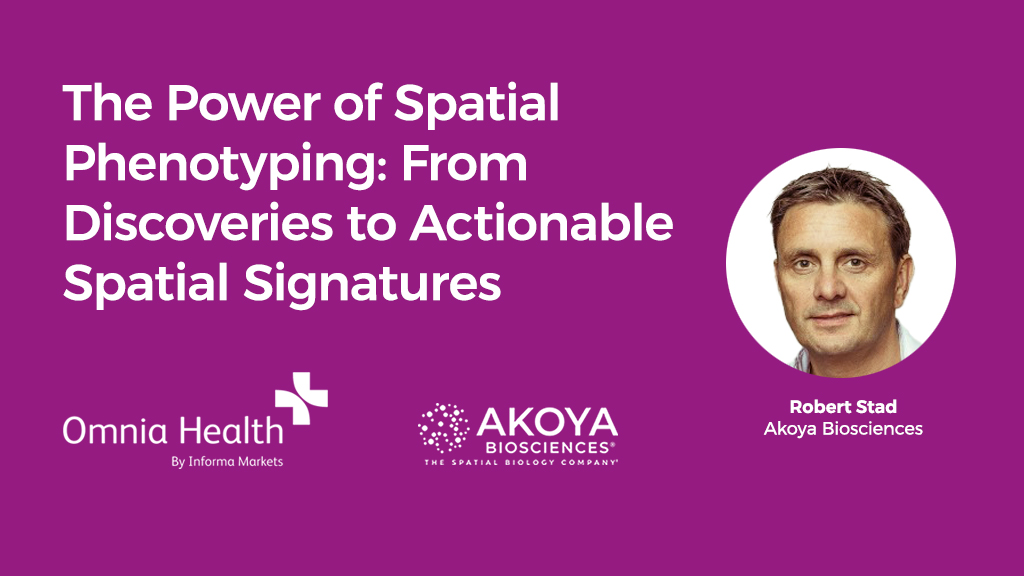Main Menu
We’ve rebranded some of our products, learn more ›
CODEX® is now PhenoCycler, Phenoptics™ is now Phenolmager.
The Power of Spatial Phenotyping: From Discoveries to Actionable Spatial Signatures
Webinar | Tuesday, July 16, 2024
Spatial phenotyping that enables whole-slide imaging at single-cell resolution has revolutionized how scientists understand cellular organization and interactions. Specifically, this approach allows for visualizing and quantifying dozens of biomarkers in a tissue sample while maintaining cellular and sub-cellular detail.
Across broad areas of research – including oncology, immunology, neuroscience, and more – spatial phenotyping is opening up new insights into inflammatory processes and tumor progression and revealing novel targets for therapy.
Join this webinar, to learn how you can scale up your spatial discovery efforts and rapidly translate those discoveries into actionable spatial phenotypic signatures with Akoya’s full continuum of spatial phenotyping solutions to serve the diverse needs of researchers across discovery, translational and clinical research.
Learning Objectives:
- How spatial biology can give you deep insight into your research and helps you to find significant biomarkers
- How to stain multiple markers on the same tissue section irrespective of primary antibody species.
- How spectral imaging and unmixing improves signal to noise ratio and gives you superior data quality.
Video

Speaker

Robert Stad, PhD
Sr. Field Applications Scientist
Akoya Biosciences
Akoya Biosciences
Biography
Robert is a Senior Field Application Scientist at Akoya Biosciences. He earned his PhD from the University of Leiden, studying regulation of p53. After a post-doc at the University of Amsterdam, working on the implementation of various gene expression profiling platforms, he left academia and specialized in imaging and microscopy working for Nikon Instruments Europe. He was first introduced to multiplexing and spatial biology when he started working for PerkinElmer in 2011 and ever since has been an avid believer in the potential of spatial biology to revolutionize disease diagnostics and personalized medicine.


